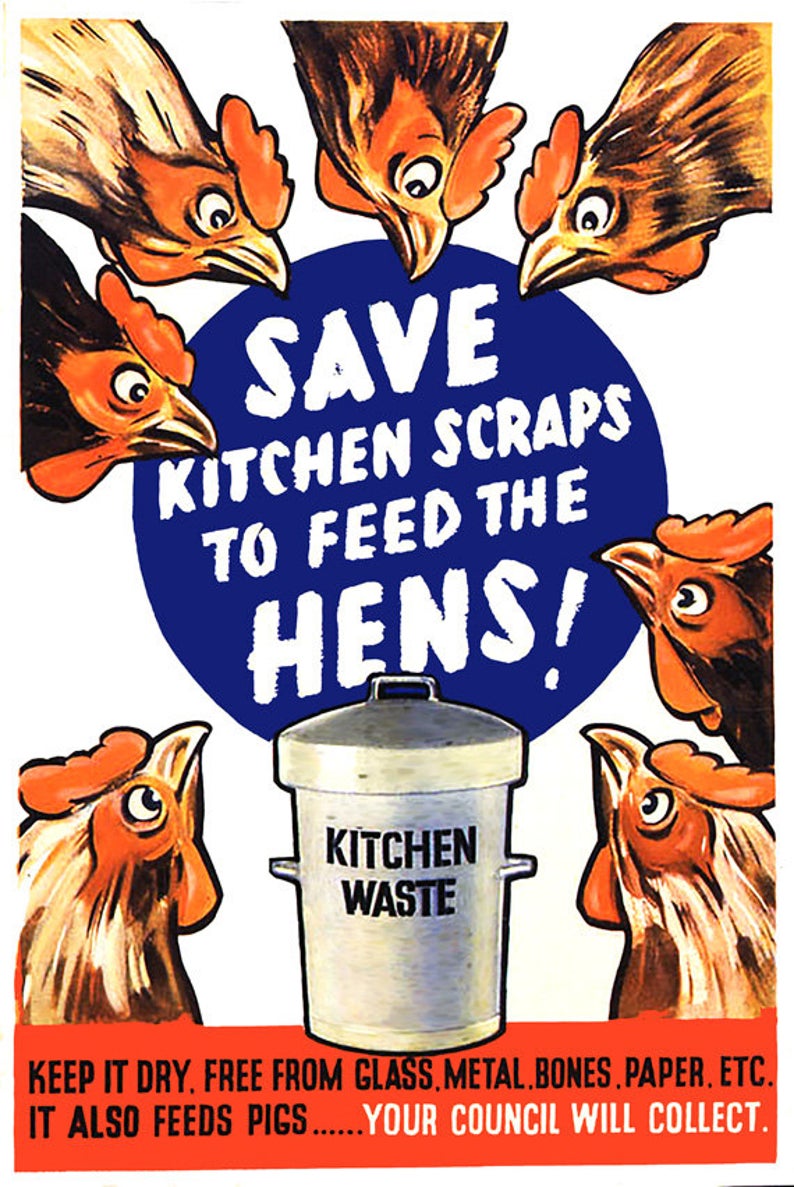Peelings and scraps: Inedible Food Waste
When we cook or prepare fruit and vegetables we usually have some parts of them that we can’t eat. Some fruit and veg comes with outer coatings we can’t eat (like the skin of bananas or oranges) or seeds and cores (think apple cores and peach stones). We also might have peelings from vegetables like carrots and potatoes. Other waste that we can’t eat could include bones from a roast chicken. This must be disposed of somehow.
Peelings and scraps: Why do we peel vegetables?
The peel around vegetables is full of nutrition and fibre, but some time in the last 70 years we started peeling more vegetables. During the Second World War “housewives” were thrifty cooks saving peelings from vegetables for stock or chicken feed. See the poster here:
Processing food often requires the outer coating to be removed. Canning must have clean fruit and veg, so peeling is recommended to reduce bacteria. Most of the time, though, peeling fruit and veg is unnecessary. We used to feed scraps to chickens and pigs. Poeple used to boil up scraps to make “slops”. This was banned due to fear of passing on animal diseases like scrapy and BSE.
How much is there?
The Waste and Resources Action Programme (WRAP) estimates around 30% of our 9.5 million tonnes of food waste in the UK every year is the inedible parts of plants and animals.
What can I do?
- Compost at home! It’s easy to start a compost bin. Read more about how to start on our Recycle Devon website.
- Save vegetable peelings and scraps for stock. Read more about making stock from scraps.
- Learn which peelings and scraps are actually inedible. Carrots, potatoes, parsnips and many other fruit and veg actually have perfectly edible skin. But don’t try eating avocado pits or apricot kernels!
- Use all the leaves of veg – make carrot top pesto and eat those beetroot leaves – delicious.
- Free seeds! Instead of throwing away seeds from vegetables like peppers and squash why not have a go at growing new plants and then harvesting your own. When seeds cost up to £4 for a packet it makes financial sense too!
Recycle Devon have written a handy book to help you reduce food waste packed full of these tips and more together with loads of recipes to use up leftovers.



 Laura Armstrong
Laura Armstrong